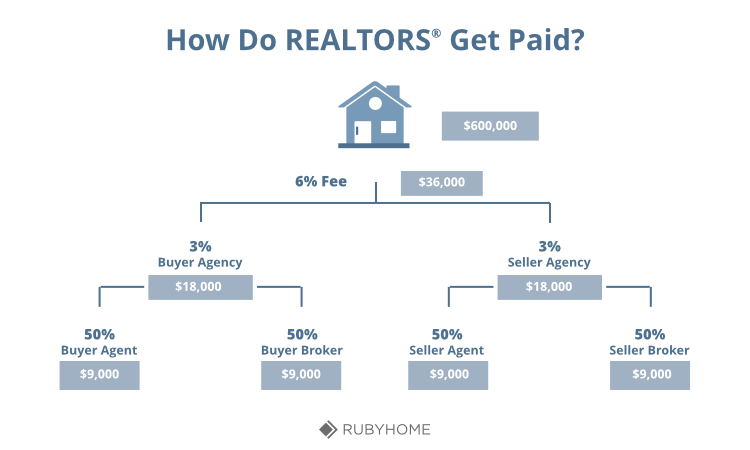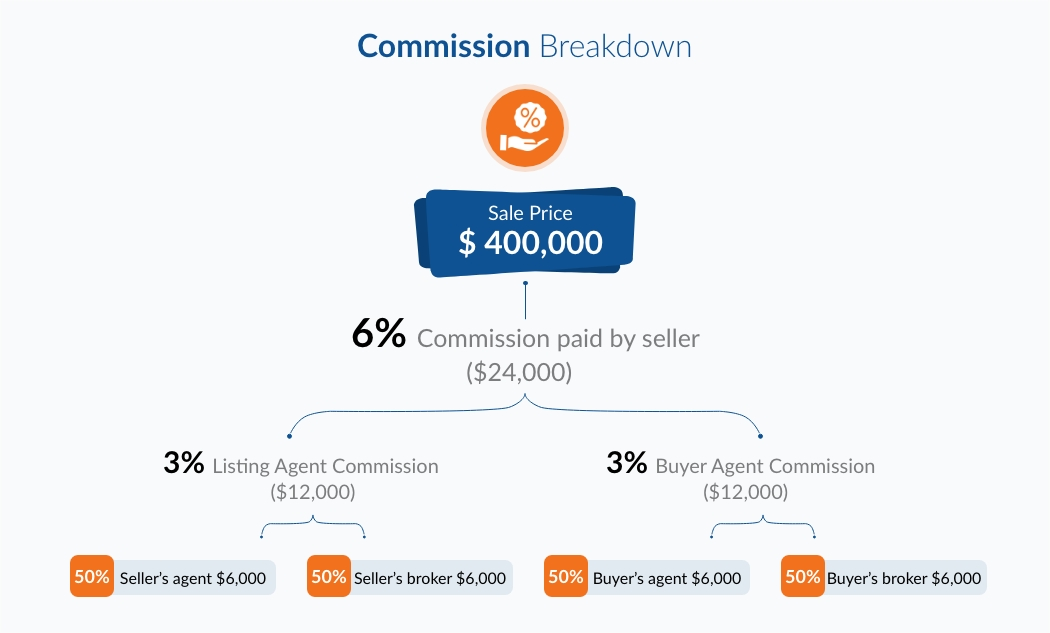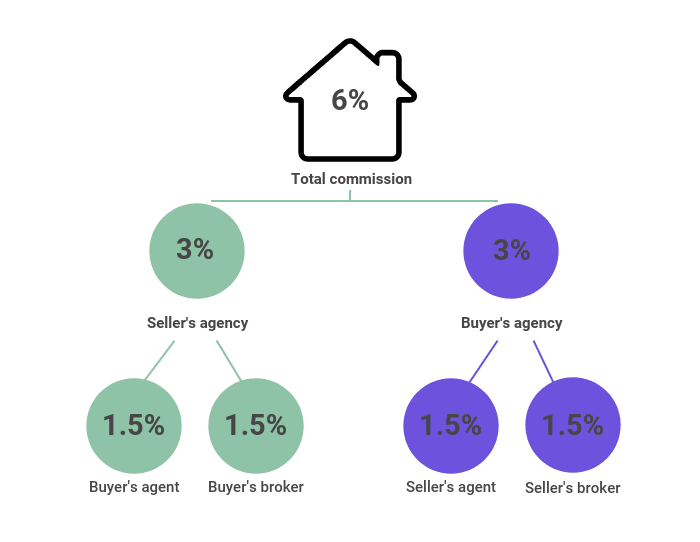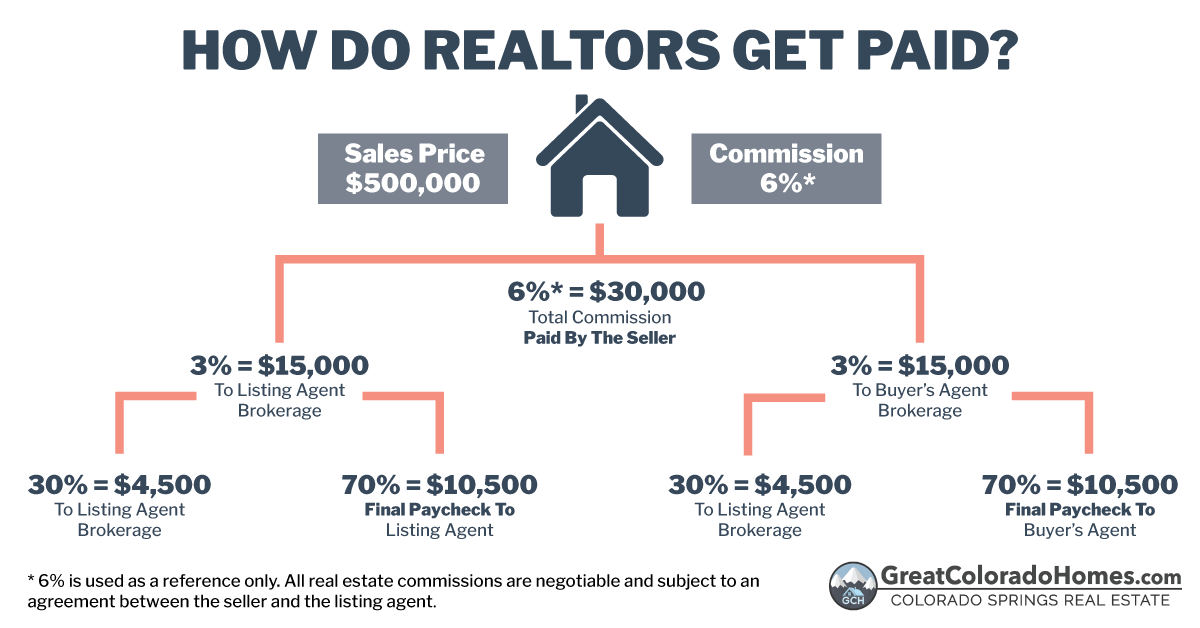Real estate agent commission is a crucial aspect of buying or selling a home. It is the fee paid to the real estate agent for their services in facilitating the transaction. Commission rates vary and can range from 2% to 6% of the total sale price. This percentage may seem significant, but it’s important to understand how this fee is calculated and what factors can affect it.
Toc
Introduction to Real Estate Agent Commission

Home buying is an exciting yet complex process, and understanding the financial aspects is crucial. One significant component is the real estate agent commission. This article aims to provide home buyers with a comprehensive guide to real estate agent commission, helping you make informed decisions.
Understanding Real Estate Agent Commission
Real estate agent commission is the fee agents receive for their services in helping you buy or sell a home. Typically, this commission is a percentage of the property’s sale price, usually ranging between 5% and 6%. This fee is often split between the seller’s agent and the buyer’s agent, though the seller usually pays the total commission.
Factors Affecting Real Estate Agent Commission
Several factors can influence the commission rate, including:
- Location: Commission rates can vary significantly by region.
- Market Conditions: In a hot market, agents might be willing to negotiate lower rates.
- Agent Experience and Reputation: Highly experienced agents may charge higher commissions due to their expertise and track record.
- Property Value: Higher-priced homes might have lower commission percentages but higher absolute fees.
- Services Provided by the Agent: Some agents offer additional services such as home staging or marketing, which may factor into their commission rate.
- Negotiation: Commission rates are not fixed and can be negotiated between the agent and their client.
Understanding How Real Estate Agent Commission is Calculated
To understand how real estate agent commission is calculated, let’s use an example. Suppose you are selling a home for $500,000, and your agent charges a 5% commission rate. The total commission would be $25,000 ($500,000 x 0.05). However, this amount will be split between the seller’s and buyer’s agents, with each receiving $12,500.
Data and Statistics
- According to a 2021 survey by the National Association of Realtors, the average real estate commission in the United States is 5.08%, showing a slight decrease from previous years.
- Sellers typically pay the full commission, which is then shared between the listing agent and the buyer’s agent. However, commission splits can vary widely between agents and brokerage firms.
- A 2020 study from Real Trends and Tom Ferry International reports that 65.3% of real estate professionals believe the traditional commission model will evolve over the next 5-10 years, with increasing demand for more transparent and flexible options.
Negotiating Real Estate Agent Commission

Negotiating the commission rate can lead to substantial savings. Here are some tips:
Research Average Rates
Before entering negotiations, it’s essential to conduct thorough research on the average commission rates in your area. This knowledge will provide you with a solid foundation and help you understand what is considered reasonable within the local market context. You can find this information through various online resources that specialize in real estate data, local real estate listings that often indicate commission rates, or by reaching out to homeowners who have recently bought or sold property in your neighborhood. Engaging with a community of local real estate professionals can also offer valuable insights into common practices.
Be Prepared to Compromise
While it’s crucial to advocate for a lower commission, it’s equally important to be prepared to compromise during negotiations. Listing agents often have fixed costs associated with their services, which means they need to ensure they can provide adequate marketing, support, and resources throughout the transaction process. Therefore, it’s wise to consider proposing a tiered commission structure. In this model, the agent could earn a higher percentage if the property sells for a higher price, thereby creating an incentive for them to work harder on your behalf. This approach not only fosters a collaborative relationship but also aligns the agent’s interests with your goals as a seller.
Get Everything in Writing
Once you’ve reached an agreement on a commission rate, it’s vital to ask for it in writing as part of the formal listing agreement. This document should clearly outline what services you can expect from your agent, including marketing strategies, open house policies, and any additional support they will provide, along with the agreed-upon commission. Having everything documented protects both parties and clarifies what is included in the fee structure, thereby minimizing the potential for misunderstandings or disputes later on. This step is crucial in ensuring transparency and establishing a professional relationship built on trust.
Alternative Options to Traditional Real Estate Agent Commission

In recent years, alternative options for paying real estate agent commission have emerged. These include:
Flat Fee
Flat fee services offer a predetermined amount paid to the agent regardless of the home’s sale price. This option can be particularly appealing to sellers who want to avoid percentage-based commissions, especially in a high-value market. Typically, flat fee arrangements cover specific services, such as listing the home on multiple platforms and providing limited support throughout the selling process. However, sellers should carefully evaluate the services included in these agreements to ensure they receive adequate assistance.
Discount Brokers
Another alternative to traditional commissions comes from discount brokers, who provide a reduced commission rate while still offering essential services. These brokers may leverage technology to streamline the buying or selling process, often reducing overhead costs and passing the savings onto clients. While the savings can be substantial, it’s vital to assess the level of service and support that will be provided, as these offerings can vary significantly between brokers.
For Sale By Owner (FSBO)
For Sale By Owner (FSBO) is an option for homeowners who choose to sell their property without the help of an agent. This route allows sellers to avoid paying a commission altogether, potentially increasing their profits. However, selling independently requires a considerable amount of effort, including marketing, negotiating, and handling legal documentation. Sellers should weigh their capabilities and the time commitment needed before deciding on the FSBO route.
Each of these alternatives presents its own set of advantages and challenges. Home sellers should carefully consider their goals and resources while selecting the option that best aligns with their needs.
Hourly Rate
Another option for homeowners is hiring agents who charge an hourly rate. This approach can be beneficial for sellers who require specific assistance without committing to a full commission structure. For instance, you might enlist an agent’s help for individual tasks such as pricing the house, staging consultations, or contract negotiations, paying only for the time they spend on those services. However, it’s crucial to clarify what services are covered under this arrangement and ensure that the total cost aligns with your budget. This model can provide flexibility and may be particularly attractive for those who possess adequate knowledge of the selling process but desire some professional guidance.
It’s essential to research and compare these options carefully before deciding which one is best for you. However, keep in mind that traditional full-service agents often provide comprehensive support and expertise, making their higher commission rates worthwhile.
Tips for Choosing the Right Commission Structure

Now that you have a better understanding of traditional and alternative commission structures, here are some essential tips to keep in mind as you navigate through negotiations:
Understand Your Goals and Priorities
Before engaging in discussions about commission structures with a real estate agent, it is crucial to clearly outline your objectives and what you hope to achieve through the selling process. Consider factors such as the timeline for selling your home, your target sale price, and the level of service you expect from your agent. Understanding these elements will empower you to make informed decisions and negotiate effectively. Additionally, having a well-defined set of priorities allows you to communicate your expectations clearly, ensuring that you and your agent are aligned on the strategies necessary to meet your goals.
Research and Compare Agent Profiles
Once you have an understanding of your goals, take the time to research and compare various agents in your area. Look for agents with proven track records, positive reviews, and specific expertise related to your type of property or local market. Consider reaching out to potential candidates to discuss their commission rates, services included, and how they plan to market your home. This information will help you gauge the value each agent offers relative to their fees, allowing you to make more tailored decisions that align with your expectations and financial situation.
Be Prepared to Negotiate
Negotiation is a fundamental aspect of the process when discussing commission structures with your real estate agent. It’s essential to enter these discussions with a clear understanding of what you are willing to accept and what you believe represents fair compensation for the services provided. Be open about your research findings, including average commission rates and services offered by other agents. This transparency can create a collaborative environment for negotiation, allowing both parties to explore options that satisfy their needs.
In addition, consider the potential for performance-based incentives. For instance, you might propose a lower base commission with an additional bonus if your agent achieves a sale above a certain price point, encouraging them to strive for the best possible outcome. Always approach negotiations with an open mind, as flexibility can lead to mutually beneficial agreements that enhance the working relationship between you and your agent. Remember, a well-negotiated commission structure should not only protect your financial interests but also promote a sense of partnership in the selling process.
Get Everything in Writing
Once you have reached an agreement on the commission structure and other terms with your real estate agent, it is vital to get everything documented in writing. A written agreement not only protects your interests but also provides a clear reference point for the scope of services to be rendered, the agreed-upon commission rate, and any additional incentives or conditions. Make sure to review the contract carefully for any ambiguous language or details that may require further clarification. If necessary, don’t hesitate to ask questions or request adjustments before signing. This diligence helps prevent misunderstandings later on and ensures that both you and your agent are on the same page throughout the selling process. A well-documented agreement can enhance trust and accountability, contributing to a smoother transaction overall.
Stay Engaged Throughout the Process
Maintaining open lines of communication with your real estate agent is essential as you navigate the selling process. Regular check-ins will allow you to provide timely feedback, stay informed about market trends, and make any necessary adjustments to your strategy. Whether through scheduled meetings, phone calls, or emails, ensure that you are engaged and proactive in your discussions. This partnership approach fosters a collaborative environment and enables your agent to tailor their efforts to best meet your needs. By staying involved, you can help ensure that the selling experience is as seamless and successful as possible.
Case Studies and Testimonials

To further understand the impact of commission rates on home sellers, let’s take a look at some real-life case studies and testimonials from homeowners who have navigated the negotiation process successfully.
Case Study 1: Flat Fee Success
In a recent case, a homeowner in a competitive urban market opted for a flat fee service to sell their property. By paying a fixed amount, they were able to list their home on major real estate platforms without incurring high commission costs. They handled the negotiation and staging process themselves, leveraging their previous experience in home sales. The home sold quickly at a price that exceeded expectations, and the seller was pleased with the substantial savings achieved by choosing the flat fee option.
Case Study 2: Discount Broker Experience
A couple looking to downsize engaged a discount broker for their property sale. The broker offered a significantly reduced commission rate while still providing essential services such as professional photography and online listings. Although they received fewer in-person consultations compared to traditional agents, the couple was proactive in utilizing the digital resources offered by the broker. Their property sold within a month, highlighting that, while savings were substantial, full support would have further enhanced their experience.
Case Study 3: For Sale By Owner (FSBO) Challenge
In another instance, a motivated seller decided to pursue the FSBO route to avoid commission fees entirely. While they succeeded in selling their home, they quickly discovered the challenges of marketing the property effectively and managing negotiations. The seller invested a considerable amount of time into learning about legal documentation and market pricing but ultimately felt overwhelmed. This experience underscored the importance of evaluating personal capabilities and time commitment when considering the FSBO option.
These case studies illustrate the diverse paths homeowners can take concerning real estate agent commissions. Each option presents unique benefits and challenges, emphasizing the need for individual assessment based on sellers’ specific circumstances and objectives.
Expert Quotes
- “Commission structures can vary widely, and it’s important for home buyers to understand what they’re paying for and why.” – John Doe, Real Estate Association President
- “Negotiating commission rates is a common practice and can sometimes be more flexible than buyers realize.” – Jane Smith, Experienced Real Estate Agent
- “While commission is a factor, the quality of service and the agent’s ability to navigate complex transactions often outweigh the percentage.” – Michael Williams, Real Estate Broker
Conclusion
In conclusion, the landscape of real estate sales offers a variety of alternatives to traditional commission structures, each tailored to meet the diverse needs of sellers. From flat fee services to discount brokers and FSBO approaches, each option presents its own set of strengths and challenges. Homeowners must carefully evaluate their personal circumstances, including their level of expertise, available time, and financial objectives, before deciding on the most suitable strategy for selling their property. Engaging with case studies and expert insights can also provide valuable perspectives, helping sellers navigate the complexities of the market. Ultimately, the key to a successful home sale lies in making informed decisions that align with individual goals and ensuring that the chosen method optimally supports the journey to achieving a satisfactory sale.







